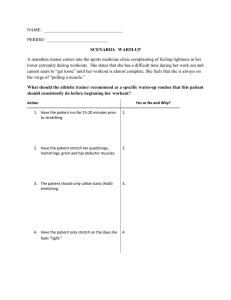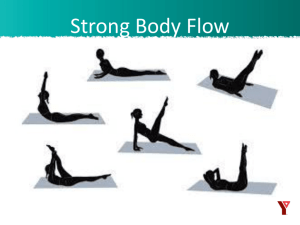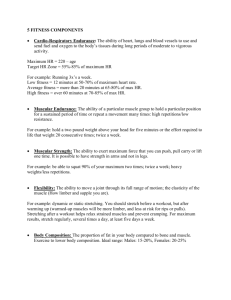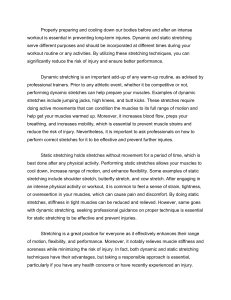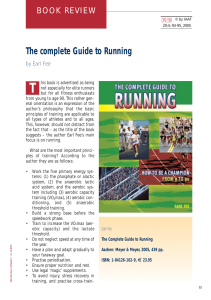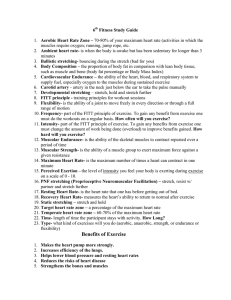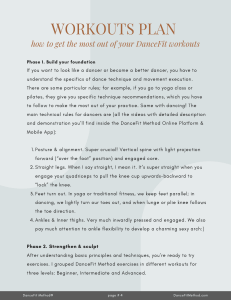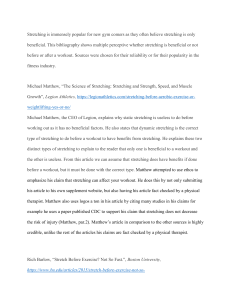Document 10656746
advertisement
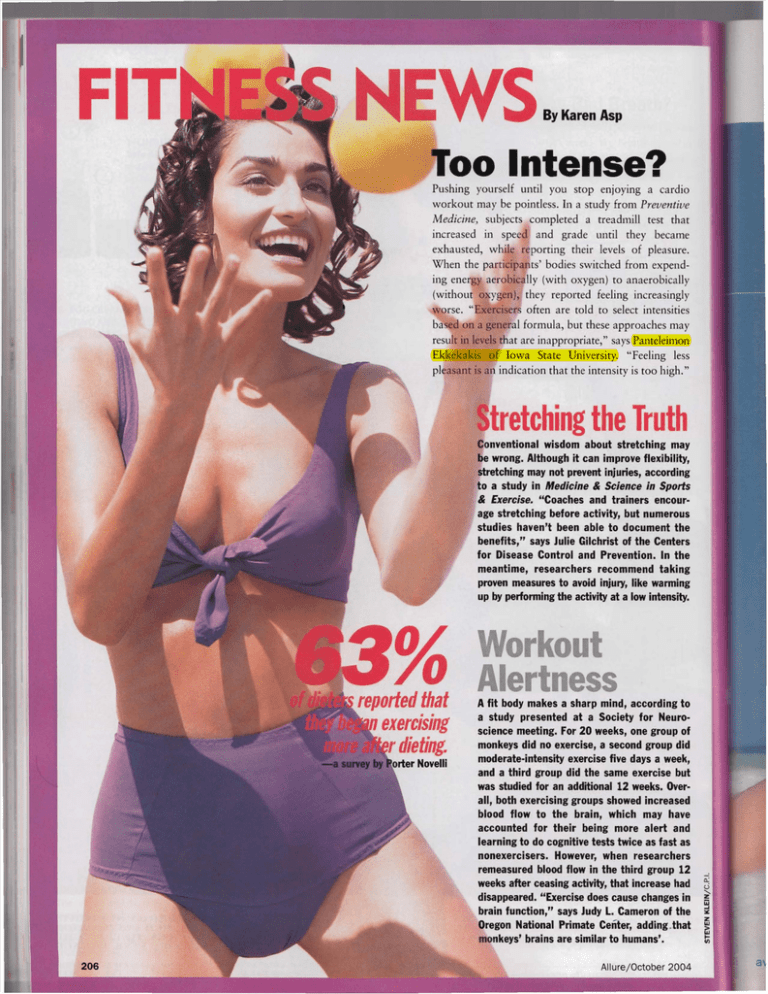
WS 00 By Karen Asp Intense? Pushing yourself until you stop enjoying a cardio workout ma y be poi ntless . In a study fro m Preuentiue J\tfedicill e, subjects completed a tr eadm ill test th at increased in speed and gra de until th ey beca me exhausted, wh ile report ing their levels of pleasure. When the pa rt icipant s' bodies sw itched fro m ex pend­ ing energy aero bica lly (with oxyge n ) to anaerobically (witho ut ox ygen), th ey reported feeling increa singly wo rse. " Exercisers often are to ld to select intensities based on a general formul a, but these approaches may result in levels that are inappropriate," sa ys Pant eleimon Ekkekakis of Iowa State University. " Feeling less pleasant is an indic ation th at th e int ensity is too high ." tretching the Truth Conventional wisdom about stretching may be wrong. Although it can improve flexibility, stretching may not prevent injuries, according to a study in Medicine & Science in Sports & Exercise. "Coaches and trainers encour­ age stretching before activity, but numerous studies haven't been able to document the benefits," says Julie Gilchrist of the Centers for Disease Control and Prevention. In the meantime, researchers recommend taking proven measures to avoid injury, like warming up by performing the activity at a low intensity. % reported that exercising 'rdieting. e rter Novelli Workout Alertness A fit body makes a sharp mind, according to a study presented at a Society for Neuro­ science meeting. For 20 weeks, one group of monkeys did no exercise, a second group did moderate-intensity exercise five days a week, and a third group did the same exercise but was studied for an additional 12 weeks. Over­ all, both exercising groups showed increased blood flow to the bra in, which may have accounted for their being more alert and learning to do cognitive tests twice as fast as nonexercisers. However, when researchers remeasured blood flow in the third group 12 weeks after ceasing activity, that increase had disappeared. "Exercise does cause changes in brain function, " says Judy L. Cameron of the Oregon National Primate Center, adding .that monkeys' brains are similar to humans'. 0:: <i £ ... iii "ffi ~ :;; a
